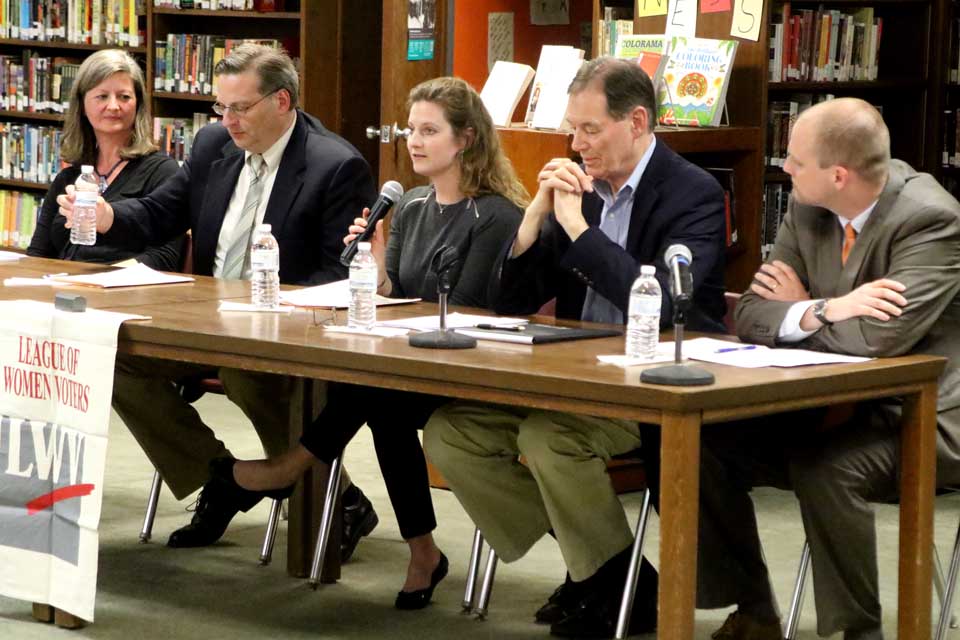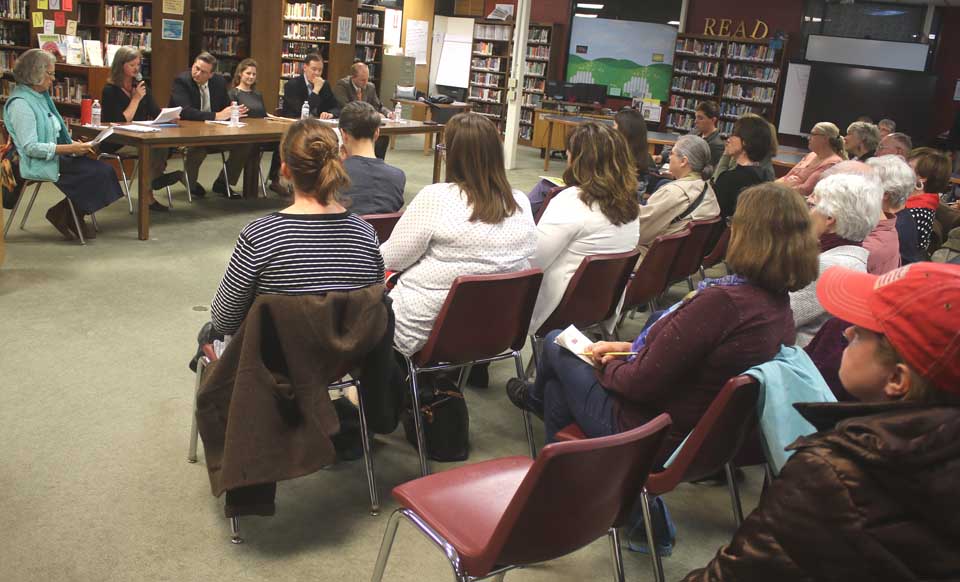Short Shorts Show
Candidates’ Divides
Did Dress Code ‘Shame Bodies,’ Or Put
Students In Frame Of Mind To Learn?

By JIM KEVLIN • Special to www.AllOTSEGO.com

COOPERSTOWN – Short shorts enlivened this evening’s League of Women Voters’ forum.
“What’s enough?” asked citizen Richard Blabey, referencing the in-school mini-furor when eight female students who showed up at the high school in short shorts on April 11, the first day when temperatures got into the 70s, and were taken out of class and counseled for a half-hour.
“Or,” he continued, “it is anything goes?”
Responding, the five candidates for two seats on the Cooperstown Central school board offered the widest range of opinions to any of the seven questions posed by audience members – about 60 attended – in the two-hour session.
First to respond in a structured sequence, Jeff Woeppel, the Bassett vice president, confessed his daughter was one of the students taken aside for a dress-code discussion. His impression was, “it wasn’t enforced continuously; (then) it was enforced abruptly.” A review underway is appropriate, particularly as it is seeking “student feedback,” he said.
“There is value is this,” Woeppel said, referring to the dress code itself. “When one goes to a job interview, one wants to have the appropriate apparel.”

The one incumbent running again, Tim Hayes – he’s a SUNY Oneonta development officer and, he noted, husband of a teacher – said the “policy” (state policy requires all schools to have dress codes) will stand, while actual specific “code” would benefit from review.
Some of the language hasn’t been changed since the 1990s, he noted: “The T-shirts that were referenced in the code don’t exist anymore – except maybe on eBay.”
As a technical writer who, she said, works to make the language of technology more accessible to the general public, Kim Jastremski said she has the language skills to help craft a code “that is clear and concise.”
The administrative response did, she said, cause the eight to feel “shame with their developing bodies,” while suggesting “education for boys is more important than education for girls.” Some “evidence-based training” for administrators might be called for.
Bruce Markusen, Baseball Hall of Fame manager of digital & outreach learning, recalled going to boys’ schools where uniforms were required, and not suffering as a result.
The previous CCS principal, he said, had a “three-strikes policy,” which gave students a chance to adjust their wardrobe choices before suffering penalties. This spring, with a new principal, “there was not a lot of lead time,” he said.
He said to Jastremski, “I disagree this had anything to do with boys vs. girls,” but rather “wanting students in the proper attitude so they are in the right frame of mind to do work.”
Gillian Spencer, the mother of four – two pupils, and two to-be pupils – agreed it was “not boys vs. girls, but it does affect the girls more than the boys.”
It was noted during the discussion that, the day after the girls were counseled, a number male students showed up in trousers cut to short-shorts length as a gesture of solidarity.

